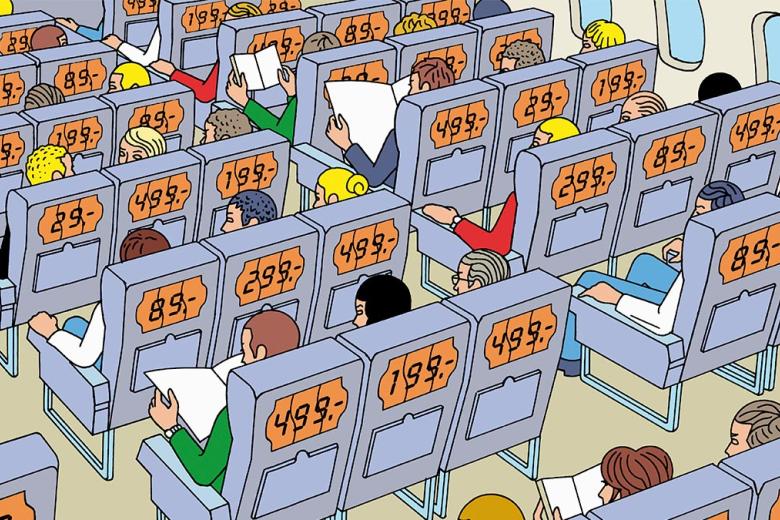Enforcement of competition laws in Latin American digital markets
"While the main stories about antitrust enforcement in digital markets that we hear about in media and specialized outlets focus on Europe and the United States, competition agencies in other regions of the World are also active in this front. How are the competition authorities in Latin America and the Caribbean contributing to the investigation of competition challenges in digital markets?"
- Since 2015, most of the competition agencies in Latin American and the Caribbean have investigated competition issues in digital markets.
- While the thrust of the agencies’ activities focused on competition advocacy, there are noteworthy merger and antitrust cases in Argentina, Brazil, Colombia, Chile, and Mexico.
- Ride hailing apps were type of platform business model that was most frequently analyzed by competition agencies in Latin American and the Caribbean.
While the main stories about antitrust enforcement in digital markets that we hear about in media and specialized outlets focus on Europe and the United States, competition agencies in other regions of the World are also active in this front. How are the competition authorities in Latin America and the Caribbean contributing to the investigation of competition challenges in digital markets?
There are 29 national competition authorities in 23 countries of Latin America and the Caribbean (LAC). Between 2015 and 2020, 57% of the national jurisdictions of the region conducted cases and/or published reports and opinions regarding digital markets. During this period, these agencies published 40 cases and studies in which competition issues were analyzed. The cases include investigations of anticompetitive conducts and merger control, but the majority of the publications were advocacy reports and opinions on bills and regulation proposals.
In this area, LAC is not falling behind other regions of the World. According to the Markets and Competition Policy group of the World Bank, Europe has the highest number of cases regarding digital markets with 38%, followed by Asia (24%), Latin America (14%), North America (12%), Africa (8%) and Oceania (4%).
However, most of the enforcement and non-enforcement activities in LAC are concentrated in a handful of agencies. Most of the activities were conducted by three countries of the region: Brazil (10), Colombia (6) and Chile (4). Only five jurisdictions conducted investigations on anticompetitive conducts: Argentina, Brazil, Chile, Mexico, and Uruguay. Five jurisdictions investigated mergers: Argentina, Brazil, Colombia, Chile, and Mexico. As mentioned above, the most common tool used by competition agencies in digital markets was competition advocacy. In ten jurisdictions (Brazil, Colombia, Costa Rica, Ecuador, El Salvador, México, Panamá, Paraguay, Perú and Uruguay), competition agencies published advocacy opinions, reports, and studies of digital markets.
In LAC, the three most studied sectors were ride-hailing apps, e-commerce, and delivery services. This finding coincides with the World Bank’s research, which found that more than 50% of worldwide digital markets cases have been concentrated on transport, e-commerce, and software. Regarding ride-hailing apps, LAC’s competition agencies have focused on studying bills and regulatory projects that aim to (de)regulate the transport market in the context of their competition advocacy function. In general, the agencies concluded that regulatory processes should be based on competition principles. Most agencies recommended regulators that they should avoid creating unjustified barriers for the provision of services through ride-hailing apps, as well as creating or reinforcing regulatory asymmetries without economic justification.
With regards to merger control, one case illustrates the different approaches taken by competition agencies: the Chilean and Mexican case of Walmart / Cornershop merger. The Chilean competition agency approved the merger without conditions, claiming that the online supermarket segment was still incipient and there were no excessive entry barriers. In contrast, the Walmart / Cornershop merger was blocked in Mexico. The competition agency argued that “Walmart, directly or indirectly, could unduly displace competitors from the Comershop platform” and “would have the capacity and incentives to carry out various actions that would have the effect of crowding out or slowing the growth of their competitors”. Although the parties proposed remedies, the Mexican competition agency concluded that the remedies would not “correct the detected risks”.
In sum, in LAC’s digital markets ex ante interventions (advocacy and merger control) prevail over ex post interventions (prosecution of horizontal and unilateral conducts). While most of the competition agencies of the region have analyzed competition issues in digital markets, most cases and reports are produced by a handful of jurisdictions. More specifically, enforcement activities were mostly conducted by agencies of the biggest economies of the region: Brazil, Mexico, Argentina, Colombia, and Chile.
| This guest blog was written by Juan David Guttiérez and Manuel Abarca for the IGIR and METRO Faculty of Law Maastricht #COMIPinDigiMarkts2022 project - More blogs on Law Blogs Maastricht |
This guest blog is part of the project #COMIPinDigiMarkts2022. These blogs have been specially prepared by participating internal and external project members and focus on competition law and IP law, with particular reference to the digital markets.

-
Vertical information exchange enabled by web crawlers, price comparison sites, and spider software under the competition rules following Samsung (2021)
In its fining decision of 14 September 2021 regarding Samsung, the Netherlands Authority for Consumers and Markets (ACM) imposed a fine of over EUR 39 mln on Samsung Electronics Benelux B.V. (Samsung) (the Decision). According to ACM, Samsung coordinated the retail prices of Samsung television sets...

-
The digital market competition with multisided markets: a case of Indian e-commerce
Digital platforms are one of the key developments in facilitating industry 4.0 and are at the center of the multifold benefits the consumers derived through this. An important feature of the digital platforms is the presence of high sunk costs and low marginal costs (UNCTAD, 2019). This occurs since...

-
Why AI-enabled price discrimination is not always undesirable: lessons from law and economics
Digitalization has gradually changed business models and reshaped human lifestyles. The rise of business models based on the collection and processing of consumer data allows undertakings to charge business customers and final consumers different prices for the same goods or services, offered at...
